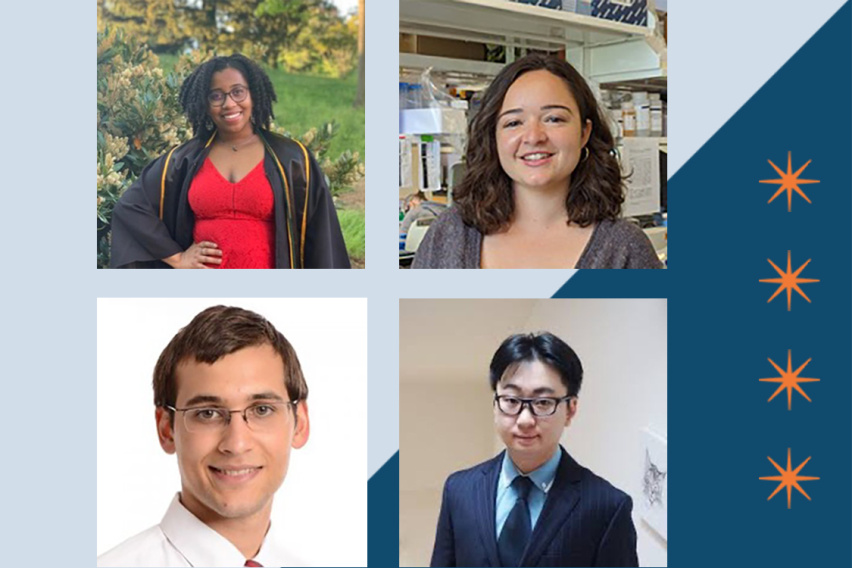January 24, 2025
Congratulations to the winners of the 2024 Peter Karches Mentorship Prize — Shandon Amos, Christina Cabana, Ivan Pires, and Jason Yu.
The Peter Karches Mentorship Prize is awarded annually to up to four Koch Institute postdocs, graduate students or research technicians who demonstrate exemplary mentorship of undergraduate researchers or high school students in their labs. The prize allows the Koch Institute community to celebrate and recognize the critical role that mentors play, both personally and professionally, in the early stages of a scientist’s career.
